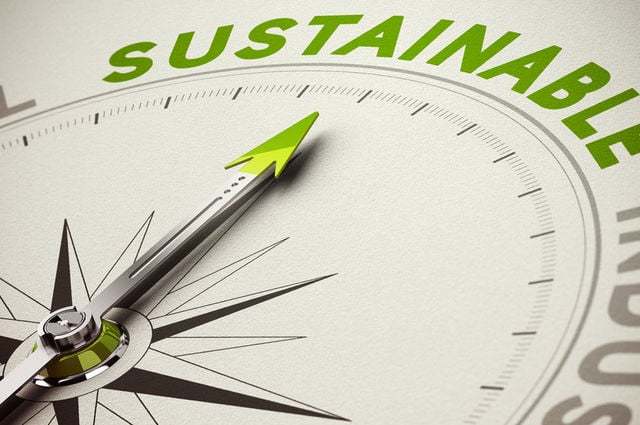Accessing Green Finance in Hospitality: Key to Transformation?
8 experts shared their view
The hospitality sector is facing major technological and regulatory changes and keeping the pace on asset and operational decarbonization increasingly depends on securing finance to drive this transformation. Green finance provides funding instruments that support businesses that are committed to reducing their carbon footprint for example. Therefore, hospitality businesses that wish to harness these financing opportunities also need to provide the right data on sustainability since green finance is specifically allocated for projects with quantifiable environmental benefits. In the hospitality industry, such projects can include energy efficiency upgrades, renewable energy systems, water conservation measures, or sustainable waste management programs. But research shows that while green finance offers tremendous potential in the transformation of entire sectors and a general agreement that access to finance is a key component to rapid climate action[1], there are many barriers to surmount. Specifically for businesses these include the lack of awareness of green finance products, the complexity of analyzing green finance options, the ambiguity around the assessment of corporate sustainability and the unavailability (better lack?) of sustainability data[2].
So, with this in mind, and with the goal to provide some support to the hospitality sector on green finance, we are asking the following:
- What is the most effective strategy (or best practice) for identifying, applying for, and securing green finance opportunities tailored to the unique needs and goals of a hotel business aiming to implement sustainable initiatives? (optional: what are the challenges to overcome?)
References:
[1] IPCC (2023). AR6 Synthesis Report: Climate Change 2023. https://www.ipcc.ch/report/sixth-assessment-report-cycle/, p.80
[2] Gilchrist, D., Yu, J., & Zhong, R. (2021). The Limits of Green Finance: A Survey of Literature in the Context of Green Bonds and Green Loans. Sustainability, 13(2), 478. https://doi.org/10.3390/su13020478
Hospitality and tourism businesses face increase costs and competition to secure funding post-Pandemic. This means both new hotels and seasoned hospitality businesses must proactively harness sustainability initiatives to reflect healthy, purpose-driven bottom lines that will attract the right ‘green financing’. In the process of developing sound sustainability initiatives and ESG practices, hotel businesses can learn about the application process of Green Financing solutions. Concurrently, Sustainability and ESG initiatives are an additional way for hotels to differentiate their product and subsequently attract “Green Financing” (also known as “Sustainable Finance” or “Socially Responsible Financing”).
Typically, Green Financing offers lower interest rates, making it a less expensive form of borrowing. To identify the right Green Financing sources, hospitality businesses can begin by understanding what their near, medium, and longer-term financing requirements will be. They must also assess and understand what the local regulatory environment provides in terms of assistance or incentives to secure Green Financing. By projecting and underwriting forward cashflows that integrate environmentally conscious investments in both CapEx and OpEx, hotels can then apply for relevant Green Finance programs.
Potential Green Finance lenders asses more than just cashflow management and a healthy “bottom line”. The quadruple-bottom line has become a genuine measure to ensure accountability and transparency with a long-term outlook, and therefore can help hotels source Green Financing.
When considering a hospitality business’ cashflow and bandwidth or capacity to borrow, decarbonization initiatives often make long-term financial sense. Hotels need to be confident and certain in the near-term investments in both CapEx and OpEx that reflect serious commitments to ESG, decarbonization and/or other sustainability initiatives which may have higher upfront costs, but more compelling margins in the long-term.
Some challenges that hotels may need to overcome to access green financing:
1. Authority & regulation
The lack of a universal authority and framework on “Green Financing” makes it challenging for hoteliers (investors, developers and operators) to understand what truly classifies as “Green Financing”.
2. Diverse ownership / PropCo & OpCo splits
The diversity and variety of ownership structures across hospitality businesses can also be a challenge: the real estate is typically one entity while the operating business is another, and this can be a challenge. Add third-party or white-label operators and this can add another layer of complexity. Hospitality businesses that employ an owner-operator model (where Asset Management and Operations are one) may face different challenges to the asset-light model where Ownership is split from Operations entirely. This will require additional alignment of interest between Owner and Operator to ensure criteria are met for either and/or both parties to secure Green Financing.
3. Market fundamentals
The hotel industry is global, and therefore spread across world markets. This makes it complex given varied regulations and access or availability of Green Financing. Certain financial markets are less mature or more traditional than others, which may inhibit hotel brands operating at an international level.
4. Track record
Newer, more eco-conscious concepts may struggle to demonstrate “proof of concept” or healthy historic performance data to provide the necessary confidence and guarantees that lenders need. Many climate-conscious hotel brands and operators have emerged out of the Pandemic, and in relative “infancy”, making them riskier investments. Likewise, sustainability initiatives take time to pay-off (ie, investments in renewable energy or energy optimization technology) typically have higher upfront costs that take time to reflect on the bottom line.
5. Upskilling accounting / reporting staff
Operational and finance teams will need to be trained on new metrics and measurements required for typically more detailed and stringent reporting that comes with Green Financing. Employees used to the traditional hotel P&L will have to familiarize themselves with ESG / Sustainability criteria and how that can be reflected and demonstrated effectively on both an operational and property level.
6. Communication to guests
For many hoteliers, traditional mindsets remain strong in that “Guest is King or Queen”. However, the planet and native ecosystems, too, are “King” or “Queen”. In the context of financing hospitality operations, guests typically do not care or bother to inquire who financed the property in which they stay at, understandably so. Most consumers disregard the lending component of the business and or service they consume. Although green financing has a purpose beyond traditional lending, effectively marketing and telling stakeholders about a businesses’ green funding source(s) could become a challenge.
A lot of funding is directed towards renewable energy solutions, waste minimization on a country wide level and many times, what is being built by individual hospitality brands may not meet those exact requirements, but rather encompass a mixture of sustainability goals. To secure green finance opportunities, you should first understand the needs in the industry, and what the finance is directed towards to in a way, tailor & sell your initiative towards those opportunities.
As a hotel business, you have to be extremely clear on:
1. Identifying exactly what it is you are seeking funding for and match the funding types to that
What initiative are you building? What are the deliverables and goals you expect? How does it meet a need within the industry? What is the USP of this initiative? Who are your advisors/experts within the industry to support your initiative?
All questions you should have clear answers to before applying for funding. The initiative must not only make sense and be understandable to your team internally, but it must be able to be explained and understood clearly by anyone on the outside that does not have the background knowledge of what you are building and why. If the outside world that is not experts in the field can’t identify the initiative or understand entirely what your project entails, then it would not as effectively secure funding for your project nor the belief in your initiative.
This means fully understanding the business model/initiative, the need within the industry and financing world, how it will run not only short term but also long term, and the benefits it will bring to the industry in the name of sustainability.
2. Flexibility on where you are looking for funding
Depending on the time sensitivity as well as the details of your initiative, you should be flexible and not always aim for the big names. Think about every country you are operating in, especially for global brands. There are many countries and organizations looking to fast track sustainability specifically for the hospitality industry and have tailored their funding for those needs. You may be more successful targeting sometimes lesser-known funding programs/grants in countries you would have not initially thought of.
3. Planning in advance for submission of applications
Sometimes funding is the last piece of the puzzle, but often times it is then too late. The minute as a company, you understand the basis of what you are trying to build a solution for, funding should be sought directly, while putting the pieces of your puzzle together. Funding sometimes can take as long as or longer than it would take your team to build all parts of your initiative and what it will entail. With the competitiveness within the industry as it relates to sustainable solutions, if you seek funding after the fact of building your initiative, by the time you do receive the funding, it may be too late, and the competitiveness of your solution wont be valid anymore. The day you decide you want to build a sustainable initiative that you know will need external financing, should also be the day you start your search for financing. Sometimes, completing those funding applications will also help you internally to bunker down and assist in answering all internal questions of what are we building & why.
4. Collaboration
Sometimes you need to look within your network to better understand the needs & possibilities for green financing. Is your project understandable to them? Could they support to advance this initiative? More players at the right time, may mean more expertise, and possibly a bigger more effective initiative to be formed and advanced within the industry to more players. Sometimes funding may only cover a portion of what’s needed to fully run the initiative... could collaboration with other organizations cover the rest? This is a question to think of internally. Are you willing to share this solution that would advance sustainability in the industry?
Our role as an alliance is to unify the hospitality industry and propel it towards a state of Net Positive, where the industry thrives and enriches destinations.
Today I am confident the sustainability movement is underway and we are seeing a subtle shift to a "pre-competitive" mindset where hotels share best practice, including information about financing sustainable initiatives.
Green financing is a crucial enabler if we are to achieve the vision of a Net Positive Hospitality industry.
To unlock Green Finance there must be transparency. At the Alliance we are working to increase this - we recently held a webinar series on Unlocking Investment for Green and Resilient Hotels.
Information sharing is imperative but there are challenges. The industry must have a global standard to identify high quality sustainability initiatives that are worthy of investment.
Another challenge the industry is facing is the variety in ownership structures of hotel companies. This causes confusion over who should finance solutions.
Finally, the industry must agree on data to align metrics and standards. With the Alliance's groundbreaking benchmarking framework, we are close to harmonising metrics. These challenges can be overcome, and I'm confident we are becoming more aligned, with Net Positive Hospitality in sight.
Related article by Glenn Mandziuk
The most effective strategy - start with talking to your financier.....they are the experts and will know the options that are available and how your business aligns with requirements. They will also be able to unpack and present the best solutions for how green financing options suit your needs, strategies and sustainability journey.
Chances are you will need to have in place:
- A sustainability policy and plan
- Measurement of your carbon footprint
- Targets to reduce your negative impacts.
And maybe more depending on where the money is coming from and what is required. But, even if early on your sustainability journey (and you don't have any of the above in place), it is worth talking with the right people (your financiers) to get tailored advice to meet your needs and outcomes.
The most effective strategies for securing green finance would seem to focus on evidence of financial stability and ability to repay financing in a timely manner and the opportunity for lending institutions to apply an organization's documented environmental, social and governance value (ESG) efforts to their corporate reporting. Investment Business Daily recently noted that "Investors want stocks to align with ESG values". An article in Hotel Tech Report in February of 2023 details the ESG process for the hotel industry. https://hoteltechreport.com/news/hotel-sustainability-statistics
Related article by Nancy Scanlon
Promoting and showcasing green finance opportunities to hospitality professionals is key to shift their perspective on green investment. Indeed, green finance can offer short-term benefits to hoteliers through lower and/or incentivising cost of debt or capital.
This shift requires more awareness about these opportunities and improved communication among stakeholders involved in such financing processes. Identifying, applying for and securing green financing can be achieved provided that:
- the person in charge of finances is aware of such opportunities,
- the financing request is tailored to the green finance type, and
- the hotelier has identified its non-financial KPIs and has the means to report about them.
My opinion article focuses mainly on 1), ie the awareness and understanding of green finance opportunities, with practical examples based on 3 years of teaching sustainable finance in hospitality management masters and advising hospitality investors and operators.
Related article by Johanna Wagner
Sustainable development is core to how IHG are looking to grow. We know that guests are looking for more sustainable stays. They are more likely to stay with companies that are taking action to help create a more sustainable future. We recognise the importance of growing successfully and sustainably, this is a key priority of our strategy is underpinned by a series of commitments to 2030 we call ‘Journey to Tomorrow’. A challenge in this for us and our owners is financing. We are working with a wide range of stakeholders who need support and this is something we are constantly trying to make easier and simpler for them.
The Franchise model means we are working with SME’s and upfront costs / paybacks can be prohibitive to owners when it comes to Energy Conservation Measures. We need to be open and honest with owners of our hotels, what will they get for their money, where will they see savings. This is a challenge as becoming net zero is not an easy task and takes investment, we need additional support and incentives from governments to make it work. We are always engaging with governments around the world to see where we can utilise their work to support our owners.
We recently worked on measures to support franchisees through the adoption of the Inflation Recover Act (IRA) in the US. Following our targeted lobbying efforts with key White House Officials, U.S. agencies and Members of Congress, we helped to secure in the IRA an expansion to the Energy Efficient Commercial Building Tax Deduction (Sec. 179d) and extension of the Investment Tax Credit for renewable energy. The 179D deduction will offer greater value to owners making retrofits to aging systems due to lowered eligibility thresholds and increased deduction maximums, directly helping owners drive down costs and supporting IHG’s broader Journey to Tomorrow emission reduction targets. The ITC will continue to incentivize on-site renewable energy for our owners for years to come. For example In 2023 a hotel purchases and places in service solar panels on the roof of its hotel. The project cost is $500,000. Under the IRA, the tax credit is generally 6% of this cost, or $30,000. However, the value of the credit is increased up to 30%, or $150,000 if additional conditions are met. This saving can massively support our owners in making that investment.
In 2022, we submitted the first set of Energy Conservation Measure (ECM) brand standards for all AMER hotels. This year we are submitting 2 further ECM standards for existing essentials and suites hotels. We recognise many hotels have capital constraints so we are partnering with a supplier called Allumia, that can finance and implement the ECMs. We piloted Allumia’s service at EX Mechanicsburg and saw good results, Allumia financed and installed occupancy sensing thermostats at Holiday Inn Express Mechanicsburg. They were able to obtain a rebate of $7,898 on behalf of the hotel to improve the economics of the agreement for the owner. The hotel is currently seeing monthly savings of just over $700 and the savings will double after their contract period. Allumia are now set up to fit out our approved products across Energy Conservation Measures and seeing how we can make savings for more hotels.
Financing will always be a challenge, but these changes and programmes we are working on will continue to make financing easier and at the same time make our estate more sustainable for the future.
"There is sufficient global capital to close the global investment gaps but there are barriers to redirect capital to climate action." (IPCC Synthesis Report: Climate Change 2023, p. 80).
The hospitality industry is increasingly turning to green finance to fund projects that seek to reduce carbon emissions and improve sustainability. An effective strategy to identify, apply for, and secure green finance includes three basic steps:
- Setting clear sustainability goals. Essential is to articulate and map out planned sustainability projects, including energy efficiency upgrades, renewable energy systems, water conservation measures, or any other sustainability programs.
- Capturing and monitoring performance data and quantifying the environmental benefits of these initiatives. Showing a tangible proof is a key criterion for green financing.
- Enhancing awareness and understanding different financing options, eligibility criteria, application procedures, and utilizing resources provided by financial institutions.
There is a multitude of green finance tools and instrument available depending on the type (e.g. ESG funds vs green loans) and purpose (e.g. climate bonds vs social impact investing). Making sure to engage with financing partners, experts in sustainable finance or joining industry-driven forums and learn from others is key to be on top of financial opportunities and regulatory changes








